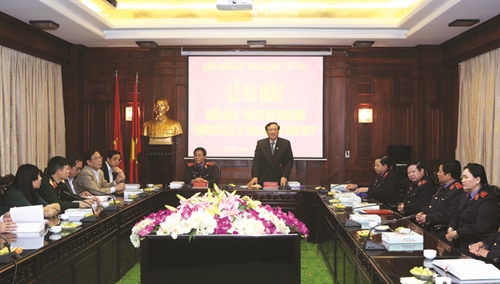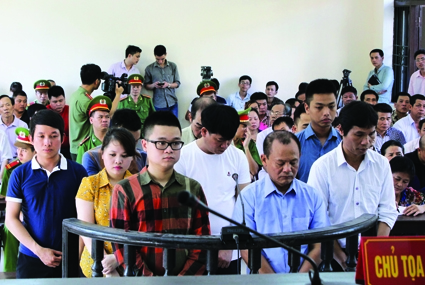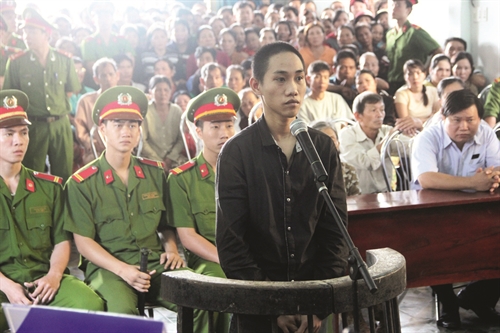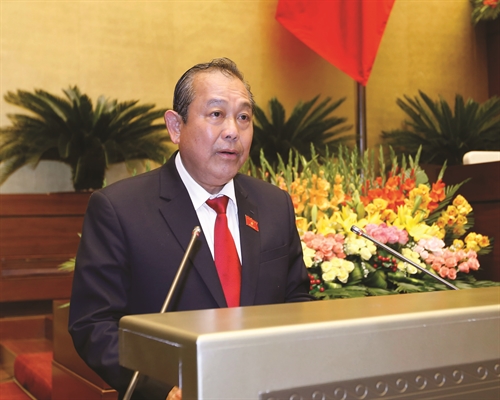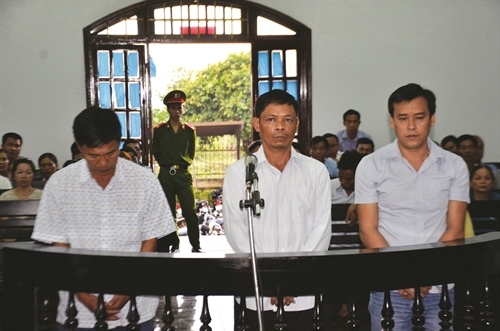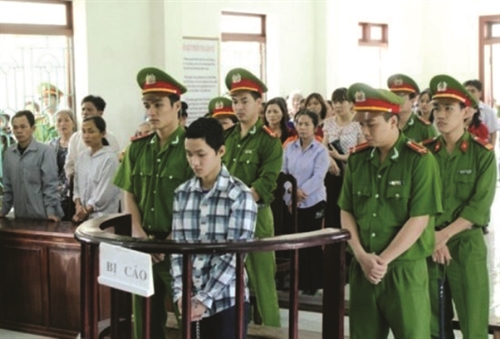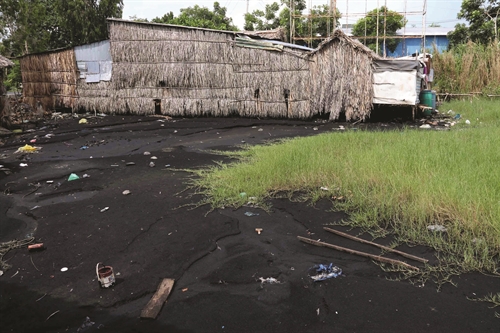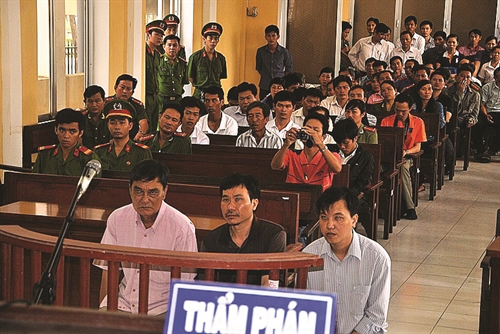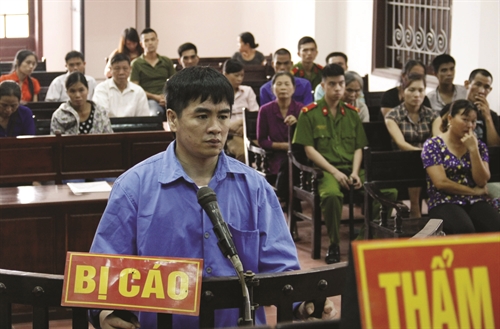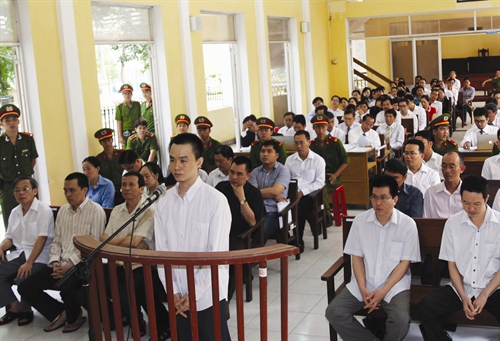Nguyen Quyet Thang*
Bui Truong Ngoc Quynh**
Terrorist crimes have long been mentioned in Vietnam’s criminal law. The first Penal Code enacted in 1985 defined terrorism in Article 78 as a particularly serious crime infringing upon the national security, considering the purpose of opposing the people’s administration a compulsory sign of this crime. The 1999 Penal Code (revised in 2009) changed the title of this crime into terrorism aimed at opposing the people’s administration (Article 230a) while keeping its constituents unchanged, and added the crime of terrorism sponsorship (Article 230b).
The 2015 Penal Code (the Code) prescribes terrorist crimes in two articles in two different chapters (Article 113 - Terrorism aimed at opposing the people’s administration, and Article 299 - Terrorism). The signs of these two crimes have the following notable features:
Regarding infringed social relations, terrorism aimed at opposing the people’s administration infringes upon the national security, the strength of the administration or diplomatic relations of Vietnam. This crime intends to harm human life and health. Meanwhile, terrorism, the second terrorist crime, infringes upon the social safety and order and stability of the people’s moral life. It purports to harm both humans and property.
In terms of the objective aspect, these crimes are fully established as soon as acts constituting these crimes are committed, regardless of their consequences. Acts constituting the two terrorist crimes include infringing upon the life, health, freedom of body; threatening to infringe upon the life or morally intimidating other people. Particularly, acts constituting terrorism also include destroying or threatening to destroy, appropriate or damage the properties of agencies, organizations or individuals.
Compared to the 1999 Penal Code, the two articles in the new Code add two new groups of criminal acts. The first group includes establishing or joining a terrorist organization or a terrorism-financing organization (Point a, Clause 2, Article 113) and the second comprises forcing, enticing, recruiting, training and drilling people to commit terrorist acts; and making and providing weapons to terrorists (Point b, Clause 2, Article 299). The addition of these two groups of acts is the translation into domestic law of the provisions of the counter-terrorism international conventions which Vietnam has concluded or acceded to[1] and of the UN Security Council’s counter-terrorism resolutions.
Regarding the subjective aspect, both terrorist crimes require the direct intention of criminals. In other words, the purpose of committing a terrorist crime is a compulsory sign. The purpose of the crime of terrorism aimed at opposing the people’s administration is to oppose the people’s administration. That of the crime of terrorism is to provoke public terror.
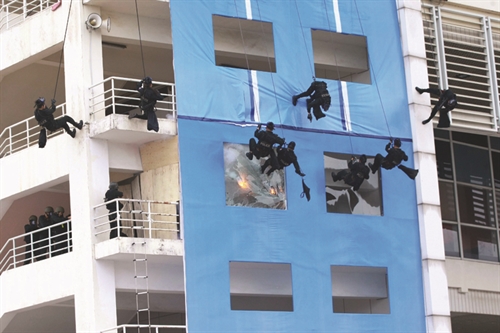 |
| Special-task policemen in an anti-terrorism drill to rescue hostage in Hanoi __Photo: Doan Tan/VNA |
Any natural person having the capacity to bear penal liability and reaching an age as prescribed by law can be charged with these crimes. But legal persons cannot.
Besides, the new Code imposes more stringent penalties against terrorists and additionally provides a penalty bracket on persons who prepare for terrorist acts[2].
Through the above analysis of the terrorist crimes in the 2015 Penal Code, we would like to point out some problems that might arise when the Code is enforced and suggest some measures to deal with them:
First, the crime of terrorism aimed at opposing the people’s administration, as defined in the Code, must involve acts that harm only human life, health, freedom of body and morality. Therefore, to have legal grounds for punishing terrorist acts that infringe upon (destroying) physical and technical facilities of the Vietnamese State as terrorism aimed at opposing the people’s administration (but not as the crime of destroying physical and technical facilities of the Socialist Republic of Vietnam) or for punishing terrorists who destroy or threaten to destroy properties of citizens or private enterprises of significant economic or social value (such as houses or tourist facilities), there should be specific guidance for Article 113 of the Code in conformity with the global view on terrorist crimes.
Second, since the new Code, the 2013 Anti-Terrorism Law and relevant documents do not define what is a terrorist organization, there should be a definition of this organization as it is mentioned at Point a, Clause 2, Article 113 and Point a, Clause 2, Article 299 of the new Code. This definition should be based on the provisions of the UN Convention against Transnational Organized Crime that define an “organized criminal group” and on the definitions of terrorist group and terrorist organization in the model legislative provisions on measures to combat terrorism[3]. Under these provisions, a terrorism organization must be a group of three or more persons, existing for a certain period of time and acting in concert with the aim of committing terrorist crimes. A terrorist organization is not a group formed by chance to commit a spontaneous crime. However, there is no requirement on the complete organizational structure of such an organization or clear assignment of role and task of each member.
Third, there should be clear, adequate explanations about the two groups of terrorist acts prescribed at Points a and b in Clause 2, Article 113 and Clause 2, Article 299 of the Code. The act of establishing or joining a terrorist organization (Point a) is prescribed by law as a constituent of the crime, but not as an act of preparing for terrorist acts[4]. So, any person who has actually established or joined a terrorist organization must be regarded as having completed committing the crime of terrorism or terrorism aimed at opposing the people’s administration, regardless of whether or not such person or organization has planned to launch a terrorist attack. The act of forcing, enticing, recruiting, training or drilling people to commit terrorist acts, making or providing weapons to terrorists (Point b) is an independent constituent of the terrorist crime, but not an act of accomplice, regardless of whether or not such act would lead to the commission of a specific terrorist act. This conforms to the guidance in Article 22.1 of the model legislative provisions on measures to combat terrorism: “For a conduct listed...to constitute an offense, it shall not be necessary that a terrorist act be actually attempted or committed.” This provision will help prevent and punish attempted terrorist acts without waiting for the occurrence of a terrorist crime.
It should also be noted that under Article 22.2 of the model legislative provisions, each act mentioned at Point a or b above will “constitute an offense regardless of whether or not it is aimed at supporting, preparing, or instigating an offence in the same State.” For example, a person who enters Vietnam to recruit another person with the intention to commit a terrorist crime in another country will be treated as a terrorist under Vietnam’s criminal law.-
